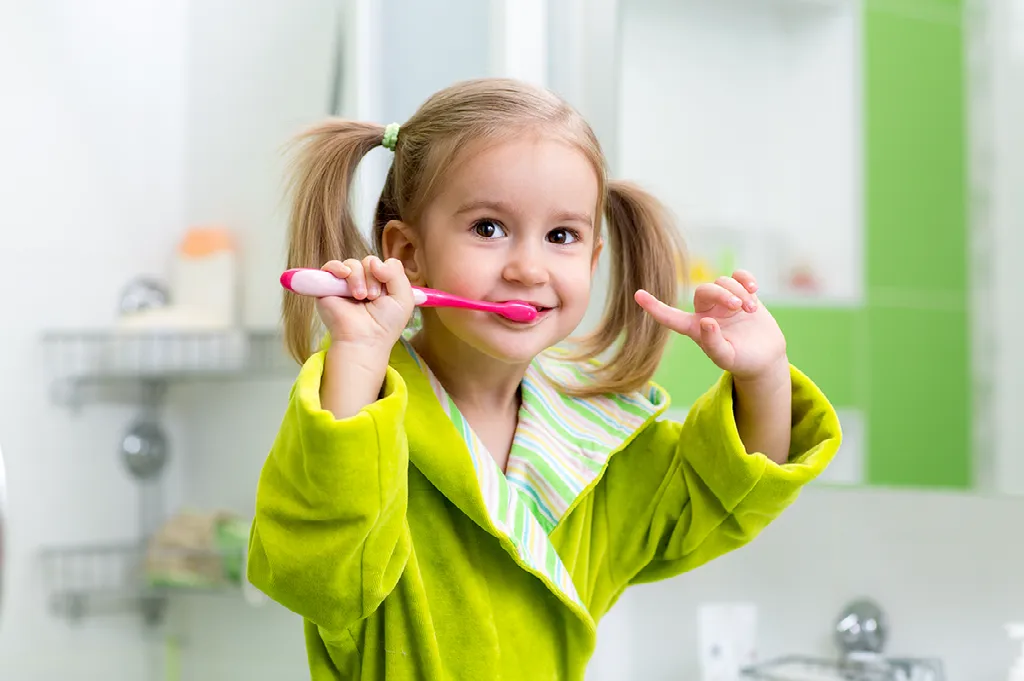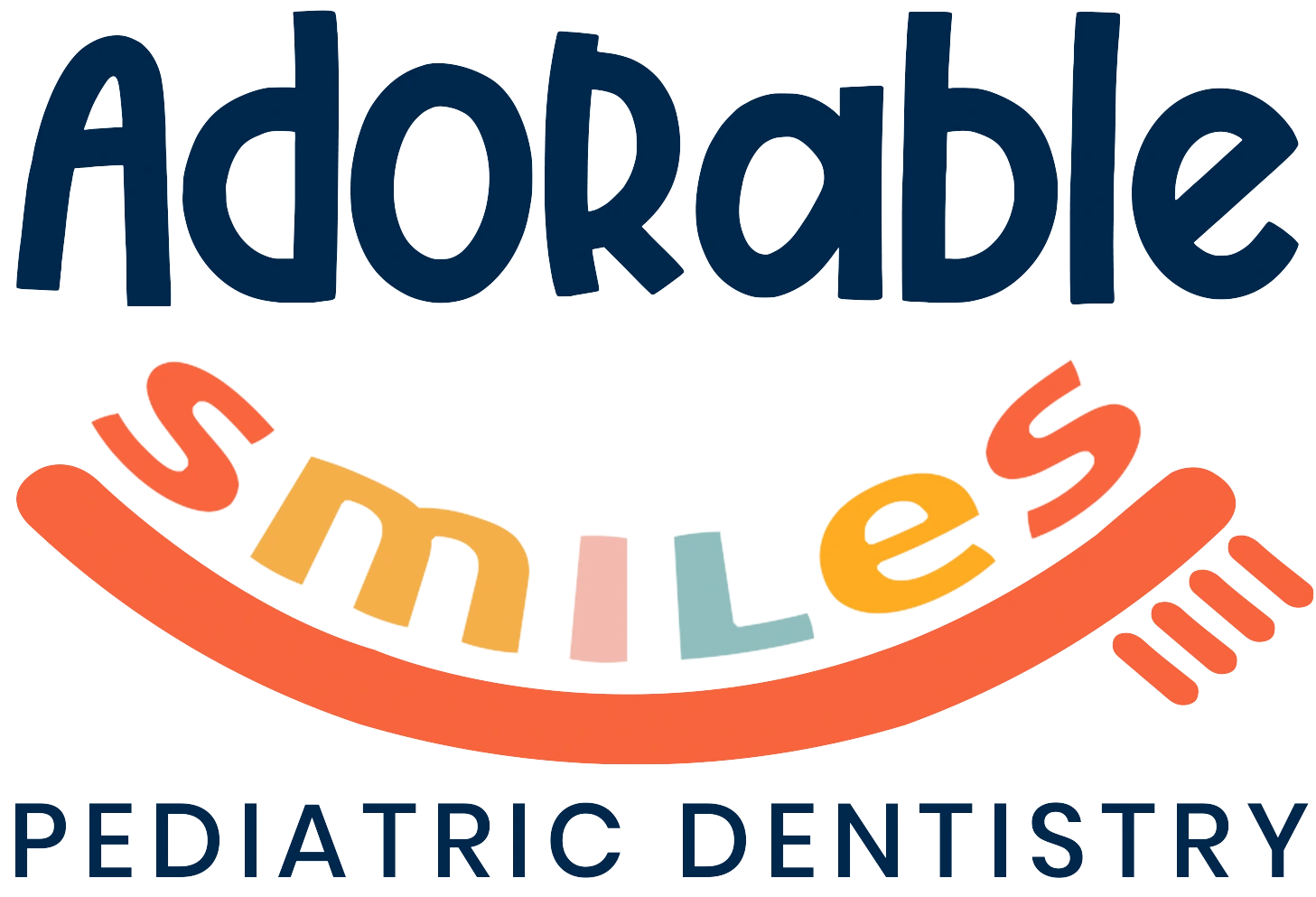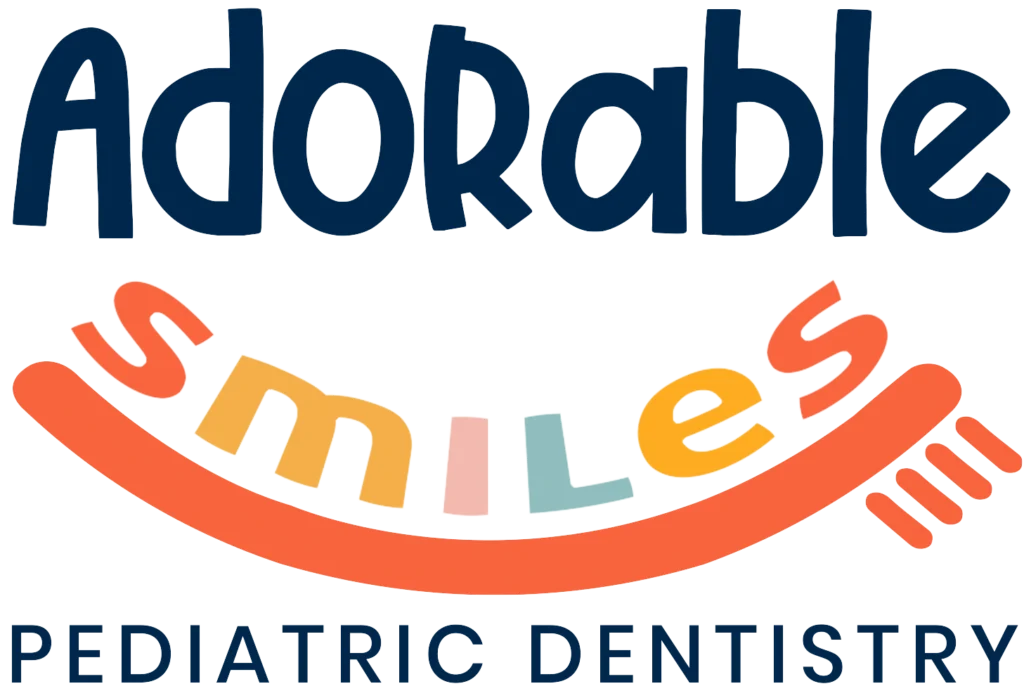Building Adorable Smiles Early
Dr. Dean Phan, Board-Certified Pediatric Dentist

The Importance
of Early Brushing
Habits for Children
Establishing proper dental hygiene practices in early childhood is essential for lifelong oral health. Dental decay, the most common chronic disease among children, can be largely prevented by instilling regular brushing habits from infancy (American Academy of Pediatric Dentistry, 2021). Early brushing not only prevents tooth decay but also promotes the development of healthy oral structures and hygiene habits that persist into adulthood. This article discusses the critical reasons to begin brushing young children’s teeth early and provides evidence supporting this proactive approach to dental care.

Preventing Early Childhood Caries
(ECC)
Early childhood caries (ECC) is a severe form of tooth decay affecting young children and is associated with inadequate brushing and oral hygiene habits (Tinanoff et al., 2019). Studies show that children who do not begin regular brushing before age two are significantly more likely to develop caries in primary teeth, which can lead to pain, infections, and even tooth loss (Pediatric Dentistry, 2022). By starting a brushing routine as soon as the first tooth erupts, parents can reduce the risk of ECC and encourage children to maintain this essential habit as they grow older.
Developing Healthy
Oral Bacteria
The oral microbiome, or the balance of bacteria in the mouth, begins forming early in life, and regular brushing plays a crucial role in maintaining it (Chen et al., 2020). Poor oral hygiene allows harmful bacteria to thrive, leading to plaque buildup and an increased risk of cavities. When brushing habits are introduced early, it helps regulate bacterial growth and reduces the likelihood of developing oral diseases. Maintaining a balanced oral microbiome also promotes better overall health, as there is a well-documented link between oral bacteria and systemic health conditions, such as cardiovascular disease and diabetes (Sanz et al., 2020).

Establishing
Lifelong Habits
Creating a daily brushing routine for young children sets the foundation for lifelong dental hygiene practices. Research indicates that habits formed in early childhood are more likely to be maintained into adulthood (O’Donnell et al., 2021). Parents and caregivers who model and assist with brushing help children understand the importance of oral hygiene, making it a natural part of their daily routine. This early introduction fosters a positive attitude toward dental care, increasing the likelihood of consistent and effective brushing practices as children grow older.
Supporting Speech and Jaw
Development
Regular brushing supports healthy tooth eruption and alignment, which are important for speech development and jaw growth. Untreated dental decay in primary teeth can lead to pain and the early loss of teeth, potentially impacting speech and eating habits (Nowak & Warren, 2021). Healthy teeth provide the support needed for clear speech development and proper jaw alignment. By brushing early, parents help ensure that children develop the necessary oral structures for speaking, chewing, and social interactions confidently.
Reducing Future Dental Costs
Early oral hygiene habits can lead to substantial cost savings in dental care over a lifetime. Preventative practices like brushing from a young age decrease the likelihood of expensive dental treatments for issues such as cavities, root canals, or orthodontic work (American Dental Association, 2020). By investing time and resources into early brushing routines, parents help reduce the financial burden of future dental issues, benefiting both their children’s health and the family budget.
In conclusion, starting brushing habits early in childhood is essential for preventing dental issues, fostering lifelong habits, and supporting broader health. Regular brushing not only helps maintain a balanced oral microbiome and prevent ECC but also supports speech and jaw development and reduces future dental costs. Parents and caregivers play a vital role in helping children develop and maintain good oral hygiene, underscoring the importance of prioritizing dental care from an early age.


